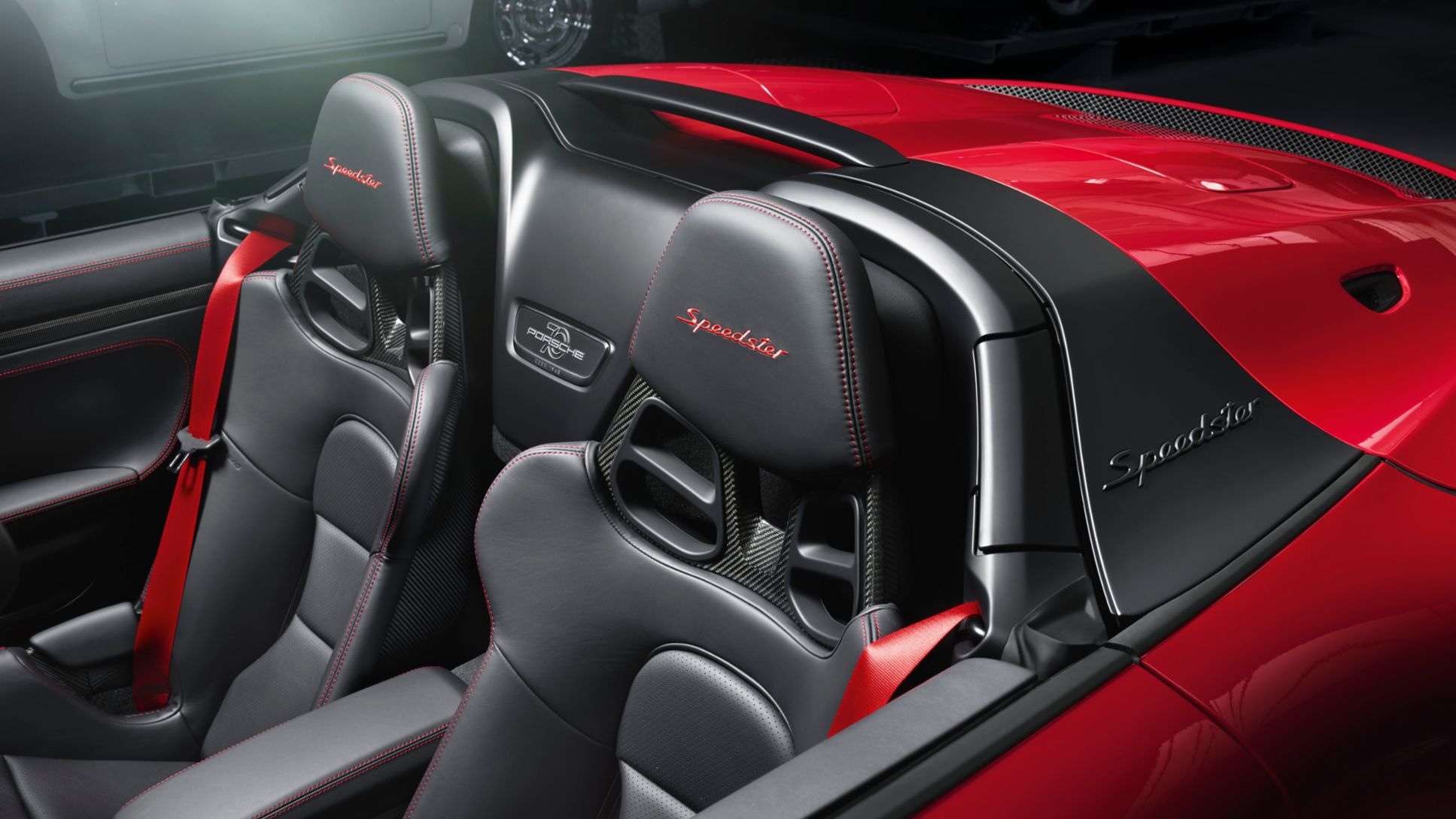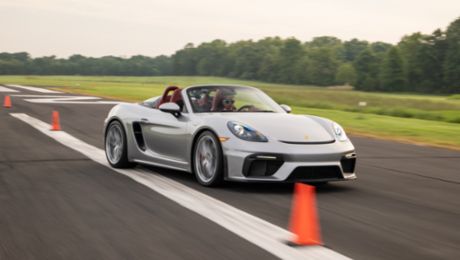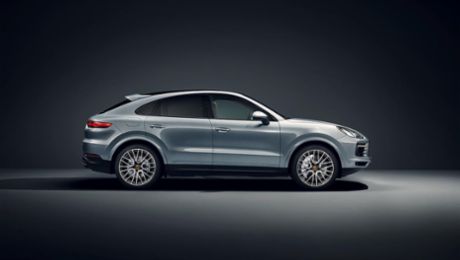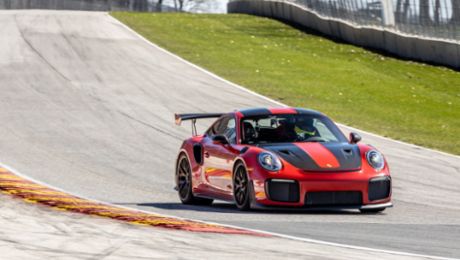Last year, Porsche celebrated its 70th anniversary of building sports cars by showing two 911 Speedster Concept vehicles to the public. Now, the production version —the last of the 991.2 series 911 GT cars to be produced by Porsche — is available for order. Powered by a naturally aspirated, motorsport-based 4.0-liter flat-six engine that develops 502 horsepower and 346 lb-ft of torque, the 2019 911 Speedster can sprint from zero to 60 mph in as little as 3.8 seconds, with a top track speed of 192 mph. To deliver a particularly engaging driving experience highly desired by purists, the 911 Speedster, with a 9000 rpm redline, is available exclusively with a GT Sport six-speed manual transmission.
Porsche Speedster models began in the United States in the early 1950s, as a lightweight, and less expensive option for the burgeoning California market and rapidly developing car culture. Speedsters combine open-top driving pleasure with incredibly distinctive driving dynamics, have been part of Porsche history since 1952. The forefather of Porsche Speedster models, the 356 1500 America Roadster, had an aluminum body manufactured entirely by hand. It weighed about 20-percent, or approximately 350 pounds (160 kilograms), less than the 356 Coupe it was based on, and its top track speed of 108 miles per hour (175 km/h) with its 70-hp four-cylinder flat engine was impressive at the time. Featuring slot-in curtain side windows, a folding top, lightweight bucket seats and no heater, this car, developed exclusively for the US market, embodied several key elements of the speedster design that would be repeated in future models.
By 2010, eight different production and special models bearing the “Speedster” name had been created. The 356 A 1500 GS Carrera GT Speedster represented a highlight in 1957, and the first 911 Speedster followed in 1988. Limited to just 356 units worldwide, the 997 generation Speedster built in 2010 was the latest model to be fitted with the famous designation.
The 2019 911 Speedster is the first developed by the Porsche Motorsport department in Weissach and is immediately recognizable as a Speedster. The low-cut front windshield and side windows as well as the manually operated lightweight fabric top are characteristic for a Speedster model and make the car stand out from other series production 911 models. The two streamliners atop the rear decklid are made from carbon fiber are yet another design highlight rooted in the model’s history.
The interior of the 911 Speedster is characterized by a focus on the essentials of driving. Lightweight door panels with storage nets and door pulls emphasize the dedication to weight reduction. The standard black leather interior can be supplemented with red stitching for the dashboard and the “Speedster” designation in the headrests. With this option, the door pulls are also fitted in red, and the GT Sport steering wheel is decorated with a red 12 o’clock center marker. The interior trim, which spreads to the gear shift knob as well as the door sill guards with “Speedster” model designation, is carbon fiber.
Underscoring its purist focus, extensive measures were taken to keep the weight of the new 911 Speedster down. The front luggage compartment lid, front fenders and rear decklid are made from carbon fiber composite material, while the front and rear fascia are constructed with lightweight polyurethane. The rear decklid, which covers the top when folded, is also made from carbon fiber composite and weighs just 22 pounds. Standard Porsche Ceramic Composite Brakes (PCCB) save about 50 percent from the system weight with grey cast iron rotors. The fabric top does without any automated operation, save for the electrically-operated latch to lock and unlock it. Air conditioning is omitted in the interest of weight savings, but can be added as a no-cost option if the customer desires. Finally, the six-speed manual transmission saves about nine pounds compared to the seven-speed manual transmission in other 911 Carrera models, and almost 40 pounds compared to a PDK dual clutch unit. With this clear focus on lightweight construction, the 2019 911 Speedster weighs just 3,230 pounds.
The 911 Speedster’s race-bred powerplant is based on the on the one used in the 911 GT3 and GT3 RS models and represents the next generation of this engine. It has been enhanced with individual throttle bodies that make the throttle response sharper, similar to the ones found on the new 911 GT3 R race car. Higher fuel injection pressure and a new lightweight exhaust system, which saves about 22 pounds of weight compared to the 2018 911 GT3, are also unique to the new 911 Speedster.
The 2019 911 Speedster uses a chassis derived from the 911 GT3 models with a specifically-calibrated rear axle steering system and dynamic engine mounts to deliver a maximum amount of precision, stability and driving pleasure. 20-inch center lock wheels painted in Satin Black are shod with Ultra High Performance (UHP) tires to offer high levels of grip, while standard PCCB (Porsche Ceramic Composite Brake) delivers very powerful and consistent braking performance.
The 2019 911 Speedster is available to order and has an MSRP of $274,500, not including a $1,250 delivery, processing and handling fee. It is expected to reach U.S. dealers in late 2019. The optional Heritage Design Package designed by Porsche Exclusive Manufaktur, which offers many styling cues and design elements inspired by classic Speedster models from the 1950’s, can be ordered for an additional $24,510.






